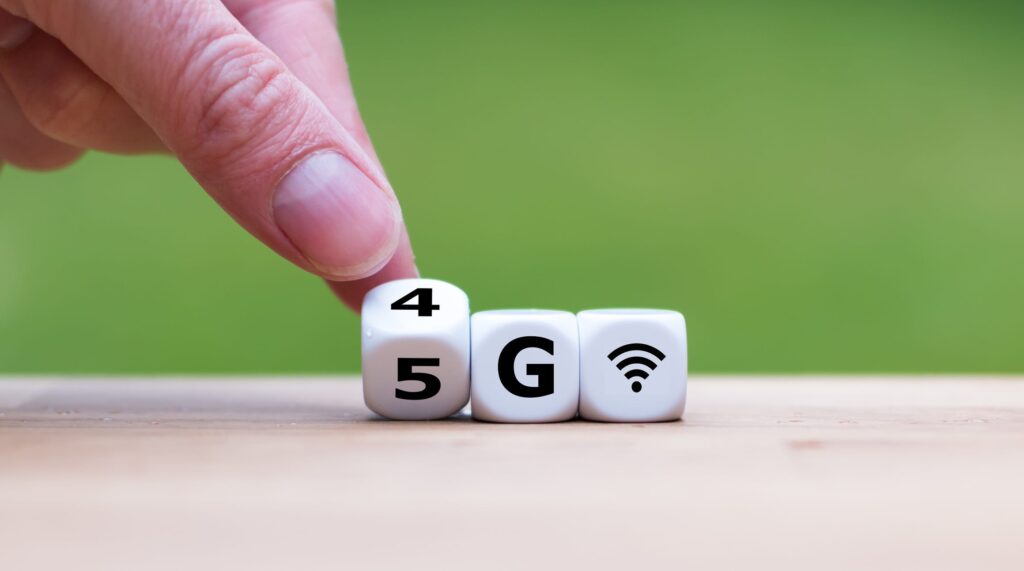The advent of 5G connectivity marks a revolutionary leap in the realm of telecommunications, promising to reshape our digital landscape in unprecedented ways. As we delve into the implications of 5G, it becomes clear that this technology is not just about faster internet speeds; it represents a fundamental shift in how we connect, communicate, and interact with the world around us. With enhanced bandwidth, lower latency, and the ability to connect a multitude of devices simultaneously, 5G is set to unlock new possibilities across various sectors, from healthcare to entertainment.
In this article, we will explore the transformative potential of 5G connectivity and its far-reaching effects on our daily lives. You will learn how 5G technology is poised to enhance smart cities, revolutionize remote work, and enable advancements in autonomous vehicles. Additionally, we will discuss the challenges and considerations that come with this new technology, including security concerns and infrastructure requirements. By understanding these facets, you will gain insight into how 5G will not only change the way we communicate but also redefine our future.
Join us as we embark on this journey to uncover the myriad ways 5G connectivity will influence our lives and the world at large. Whether you are a tech enthusiast or simply curious about the future, this exploration will provide you with valuable knowledge and a deeper appreciation for the innovations that lie ahead. Read on to discover what 5G means for the future and how it will shape the next generation of connectivity.
5G technology is set to revolutionize the way we connect and communicate. With its high-speed data transfer and low latency, it opens up a world of possibilities for various sectors. This article explores the implications of 5G connectivity for the future through several key subtopics.
Enhanced Mobile Broadband
One of the most significant advantages of 5G connectivity is enhanced mobile broadband. This technology promises to deliver download speeds that are up to 100 times faster than 4G. As a result, users can stream high-definition videos, play online games, and download large files in seconds. The increased bandwidth also allows for more devices to connect simultaneously without compromising speed.
With the rise of remote work and online education, the demand for reliable and fast internet has never been higher. 5G’s ability to support multiple devices in crowded areas, such as stadiums or concerts, makes it a game-changer for urban environments. This enhanced mobile broadband will not only improve user experience but also drive innovation in various industries.
Internet of Things (IoT) Expansion
5G connectivity is a catalyst for the expansion of the Internet of Things (IoT). With its low latency and high capacity, 5G can support a vast number of connected devices, from smart home appliances to industrial sensors. This connectivity will enable real-time data exchange, leading to smarter cities and more efficient resource management.
The integration of IoT with 5G will also enhance automation in various sectors, including healthcare, agriculture, and manufacturing. For instance, farmers can use connected sensors to monitor soil conditions and optimize irrigation, while healthcare providers can utilize remote monitoring devices to track patient health in real-time.
Impact on Autonomous Vehicles
5G technology is crucial for the development of autonomous vehicles. The low latency of 5G allows for instantaneous communication between vehicles and infrastructure, which is essential for safe navigation. This connectivity enables vehicles to share information about traffic conditions, road hazards, and other critical data in real-time.
As autonomous vehicles become more prevalent, the need for reliable 5G networks will increase. This technology will not only enhance safety but also improve traffic management and reduce congestion in urban areas. The future of transportation is closely tied to the advancements in 5G connectivity.
Smart Cities and Infrastructure
5G connectivity plays a vital role in the development of smart cities. By integrating advanced technologies with urban infrastructure, cities can improve efficiency and sustainability. For example, smart traffic lights can adjust in real-time based on traffic flow, reducing congestion and emissions.
Moreover, 5G can facilitate better public services, such as waste management and energy distribution. With connected sensors, cities can monitor resource usage and optimize operations, leading to cost savings and improved quality of life for residents. The potential for smart cities is vast, and 5G is at the forefront of this transformation.
Healthcare Innovations
The healthcare sector stands to benefit immensely from 5G connectivity. With the ability to transmit large amounts of data quickly, healthcare providers can utilize telemedicine and remote patient monitoring more effectively. This technology allows for timely interventions and better patient outcomes.
Additionally, 5G can support advanced medical technologies, such as robotic surgeries and augmented reality for training purposes. The integration of 5G in healthcare not only enhances patient care but also streamlines operations, making healthcare more accessible and efficient.
Economic Growth and Job Creation
The rollout of 5G technology is expected to drive significant economic growth and job creation. As businesses adopt 5G to enhance their operations, new opportunities will arise in various sectors, including telecommunications, technology, and manufacturing. This growth will lead to the creation of high-skilled jobs and stimulate innovation.
Moreover, the increased connectivity will enable startups and entrepreneurs to develop new applications and services, further contributing to economic development. The 5G revolution is not just about technology; it is about creating a thriving ecosystem that fosters growth and innovation.
Security and Privacy Concerns
While 5G connectivity offers numerous benefits, it also raises security and privacy concerns. The increased number of connected devices creates more entry points for cyberattacks. Ensuring the security of these devices and the data they transmit is paramount to maintaining user trust.
Governments and organizations must implement robust security measures to protect against potential threats. This includes developing standards for device security, investing in cybersecurity infrastructure, and educating users about safe practices. Addressing these concerns is essential for the successful adoption of 5G technology.
Future of Work and Remote Collaboration
5G connectivity is set to transform the future of work and remote collaboration. With faster internet speeds and improved connectivity, teams can collaborate seamlessly, regardless of their physical location. This technology enables high-quality video conferencing, real-time file sharing, and access to cloud-based applications without lag.
The shift towards remote work has accelerated due to the pandemic, and 5G will further enhance this trend. As businesses embrace flexible work arrangements, the demand for reliable connectivity will continue to grow. 5G will play a crucial role in shaping the future workplace, making it more connected and efficient.
| Aspect | Description |
|---|---|
| Speed | 5G technology offers significantly faster data transfer rates compared to 4G, with potential speeds exceeding 10 Gbps. |
| Latency | 5G reduces latency to as low as 1 millisecond, enabling real-time communication and responsiveness in applications. |
| Capacity | 5G networks can support a larger number of devices simultaneously, making it ideal for densely populated areas and IoT applications. |
| Connectivity | 5G enhances connectivity for various devices, including smartphones, smart home devices, and autonomous vehicles. |
| Applications | 5G will enable advancements in various fields such as telemedicine, augmented reality, virtual reality, and smart cities. |
| Economic Impact | The rollout of 5G is expected to contribute significantly to global economic growth, creating jobs and fostering innovation. |
| Challenges | Deployment of 5G faces challenges including infrastructure costs, regulatory hurdles, and security concerns. |



